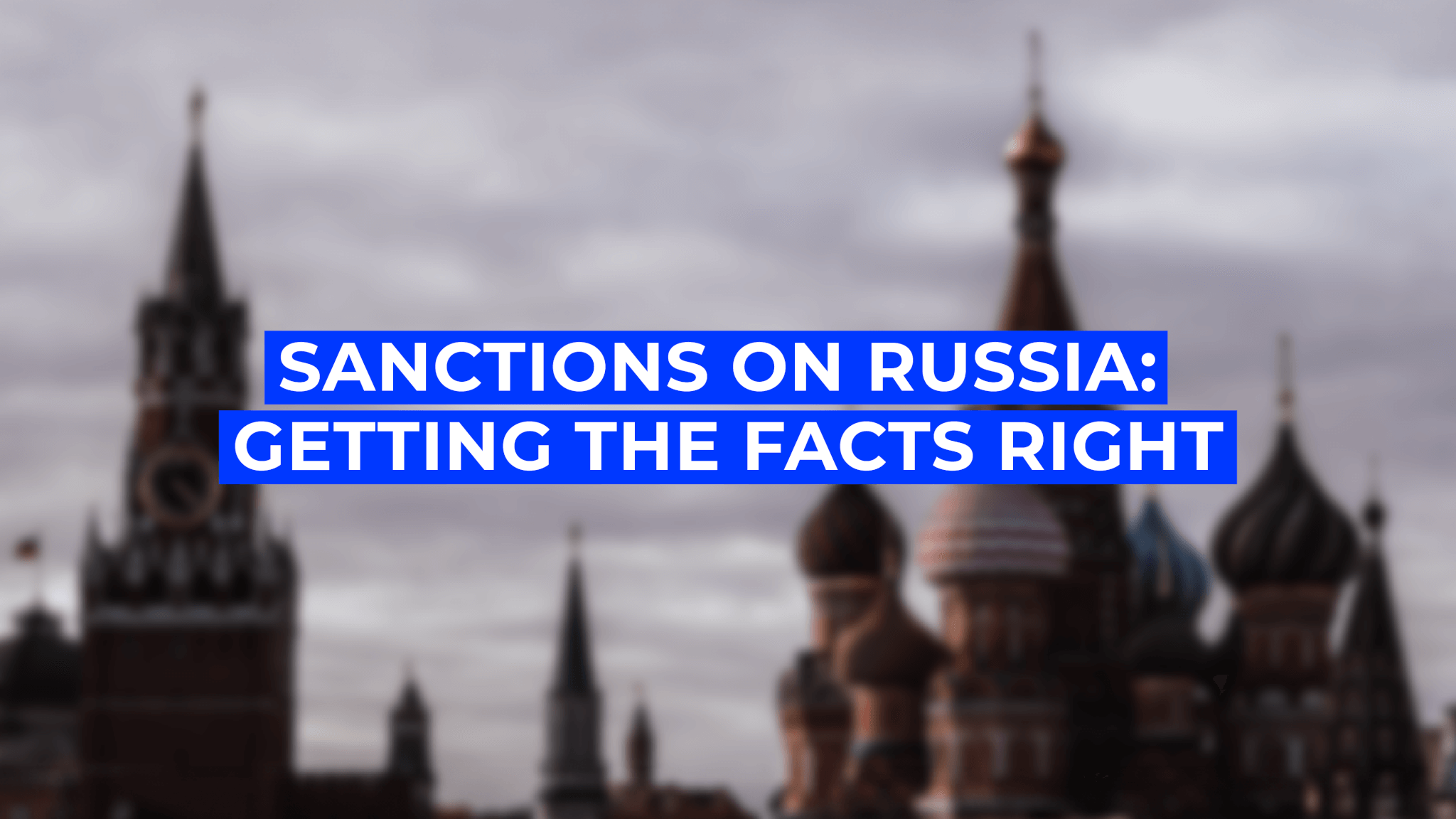- Kyiv School of Economics
- About the School
- News
- Sanctions on Russia: Getting the Facts Right
Sanctions on Russia: Getting the Facts Right
14 March 2024

In response to concerns regarding the effectiveness of sanctions expressed in top-tier media outlets around the two-year anniversary of Russia’s full-scale invasion, KSE Institute experts, together with colleagues from SITE, BICEPS, Beijer Institute, CREA and Uppsala University, published a FREE Policy Brief “Sanctions on Russia: Getting the Facts Right” to rebut false narratives that undermine our joint efforts to stop Russian aggression and maintain peace and prosperity in Europe. Sanctions can and do work, and they are not a substitute for robust financial and military support to Ukraine but rather a complement.
Framing sanctions as a substitute for other actions and falsely concluding that they have failed to impact Russia undermines the ongoing two-year effort to limit Russia’s ability to finance and conduct its war of aggression. It’s important to recognize that Putin’s regime poses a threat not only to Ukraine but also to the established rule-based world order. Allowing Russia access to billions in export revenues and critical advanced technology will mean that military and financial support have to be stepped-up dramatically and maintained for much longer. Therefore, sanctions must remain a key element of our multipronged strategy and should be strengthened, not lifted.
The FREE Policy Brief addresses several key misconceptions with regard to sanctions:
First, sanctions have had a meaningful impact on Russian macroeconomic stability. Restrictions on energy exports contributed to a 28% drop in goods exports in 2023 vs. 2022, a 62% smaller trade balance, and a 79% smaller current account surplus. As a result, the ruble has weakened sharply and authorities were forced to take painful measures to stabilize the exchange rate and address inflation, while their policy space is also meaningfully restricted by sanctions.
Second, the enforcement of sanctions is continuously being improved as more schemes to bypass restrictions are discovered by coalition authorities and researchers and as Russia adapts circumvention strategies and networks. The negative assessment of potential improvements in many commentaries invalidates efforts to make sure that sanctions on Russia have the biggest possible effect. It is true that several key measures, including the oil price cap and export controls on dual-use goods have faced challenges. However, the path forward is to step up efforts and strengthen implementation and enforcement—and not to abandon the strategy altogether. Most critics fail to provide any ideas as to how an alternative strategy to contain Russian aggression could look like.
Third, it’s important to note Russia’s shift to a wartime economy, which is the key driver behind economic numbers often cited as “evidence” for the ineffectiveness of sanctions. For instance, the fiscal stimulus from $100 billion of planned military spending could increase GDP growth by 2.5 percentage points in 2024. However, this is a short-term solution. Once the war fiscal stimulus is withdrawn, a constrained labor market (due to massive human losses and emigration of skilled workers), and a fundamental lack of investment due to Russia’s isolation from the most important financial markets will further weaken Russia’s already abysmal economic potential.
Fourth, the narrative that sanctions have harmed the countries imposing them more than Russia is misguided and damaging. This is not to say, for instance, that Europe has not faced soaring energy prices and its economy was not impacted. However, these implications had little to do with sanctions, but rather with Russia’s war on Ukraine and its attempts to weaponize fossil fuels against Ukraine’s allies. While it is true that sanctions have medium- and long-term consequences, they need to be carefully assessed. Concerns about China and Russia reshaping the global financial system are legitimate, but practical challenges, such as logistical obstacles and the enduring power of the U.S. financial system, complicate such endeavors.
Fundamentally, the narrative that we have to choose between sanctioning Russia and aiding Ukraine financially and militarily misses the point. Sanctions aren’t viewed as a panacea, or a substitute. Rather, they are an integral part of a broader strategy to counter Putin’s aggression against Ukraine and threat to peace, liberty, and prosperity in Europe and beyond. If economic measures fail, more military and financial aid for Ukraine would be needed, and the costs for Ukraine’s allies would rise dramatically.
